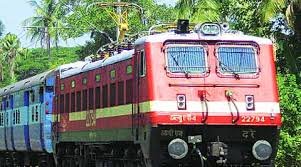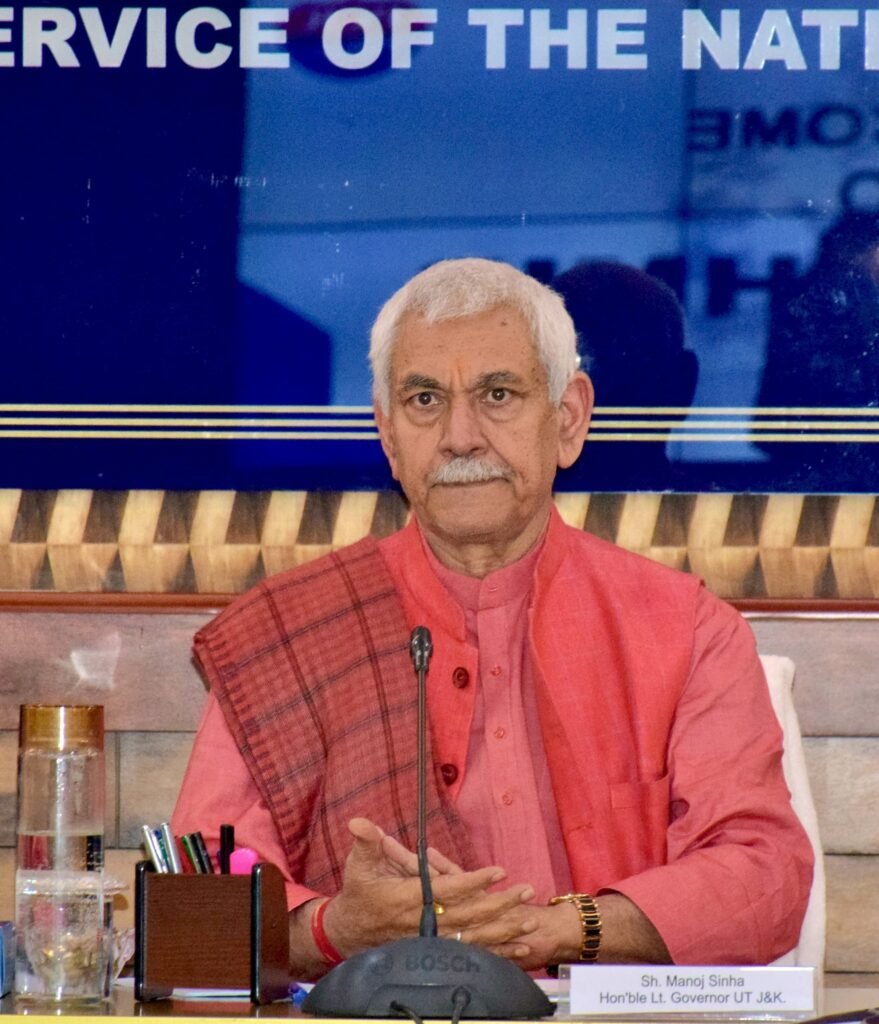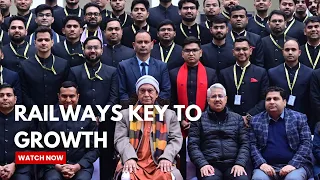Jammu, October 1, 2025:In a move that brings immense relief to passengers and traders, Northern Railways has announced the resumption of 16 train services from Jammu, starting October 2 to October 8. The restoration comes after nearly two months of disruption caused by the devastating August floods, which had crippled rail connectivity across large stretches of Jammu and Kashmir.
The announcement carries special significance as the Union Territory steps into the festive season. The return of trains promises to revive pilgrimage, tourism, and trade, while easing the travel woes of thousands of passengers who had faced hardships in recent weeks.
Floods of August: A Blow to Connectivity
The August floods had left a trail of destruction across the Himalayan belt, with railway tracks, bridges, and signaling systems severely damaged. Jammu, the principal railway hub of J&K, was cut off from many destinations as Northern Railways was forced to suspend services.
For the people of Jammu and Kashmir, the disruption was more than an inconvenience—it struck at the heart of connectivity. Passengers, pilgrims, students, and traders bore the brunt, relying on expensive flights or overcrowded buses.
Repairing the damaged sections became a mammoth task. “Our teams worked round the clock through difficult terrain, heavy rains, and unstable slopes. The resumption of 16 trains within such a short period stands as testimony to our commitment,” said a senior Northern Railways official.
October Revival: A Timely Relief
The timing of the resumption aligns with the upcoming festivals of Navratri, Dussehra, Eid-e-Milad, and Diwali. Traditionally, these weeks witness a surge in passenger movement, pilgrim inflow, and tourism activity in the Union Territory.
“After weeks of uncertainty, this announcement has come as a blessing. Families can now travel with ease, and pilgrims heading to Mata Vaishno Devi will benefit immensely,” said Rajesh Sharma, a Jammu-based shopkeeper preparing for festive sales.
Travel and hospitality stakeholders echoed similar optimism. Hotels in Katra, Srinagar, and Gulmarg are expecting a visible increase in bookings as the news spreads. “Airfare had become a barrier. With train services restored, we foresee more tourist arrivals in Kashmir during October-November,” noted a Srinagar hotelier.
List of Trains Resumed
Northern Railways confirmed that 16 trains will resume operations between October 2 and October 8, reconnecting Jammu with Delhi, Mumbai, Kolkata, Chennai, and other destinations.
Some of the key trains include:
- Jammu Tawi–New Delhi Rajdhani Express
- Shri Shakti Express (Jammu–Katra–Delhi)
- Jammu Tawi–Ahmedabad Express
- Jammu Tawi–Mumbai Central Superfast
- Jammu Tawi–Kolkata Express
- Jammu Tawi–Patna Express
- Jammu Tawi–Jaipur Superfast
- Jammu Tawi–Chandigarh Intercity
The gradual resumption aims to balance passenger demand with ongoing safety checks. Officials assured that additional trains will be reinstated once technical clearances are complete.
Pilgrimage and Tourism to Gain Momentum
Jammu’s spiritual tourism is expected to see immediate benefit. The Shri Shakti Express and other Katra-bound services will once again carry devotees to the Vaishno Devi shrine, especially during Navratri when footfall traditionally surges.
“This is a moment of great relief. We had postponed our yatra, but now we can finally proceed,” said Seema Gupta, a devotee from Punjab waiting at Jammu station.
For the Kashmir Valley, the revival of train services will boost domestic tourism ahead of winter. Cheaper and more reliable rail travel is likely to draw visitors keen to experience Kashmir’s autumn charm and snow-laden winters. From the saffron fields of Pampore to Gulmarg’s gondola rides, improved connectivity will support the sector’s growth.
Voices of the People
For many families, students, and workers, the resumption brings a sense of normalcy.
Shazia Jan, a university student: “We were stranded in Jammu because flights were unaffordable. Trains are our backbone. This decision means we can return to classes without anxiety.”
Ramesh Kumar, a daily wage worker: “Bus fares had tripled. For us, trains are survival. I can now travel to Delhi for work again.”
Tour operators in Srinagar: “With railways restored, we expect higher bookings from across India. The relief is not only for passengers but for the entire tourism economy.”
Jammu: The Lifeline of Rail Connectivity
Jammu Tawi station is the gateway of rail travel for the Union Territory. It serves not only passengers but also freight carriers transporting apples, walnuts, handicrafts, and pashmina shawls from Kashmir to national markets.
The suspension of trains had impacted these sectors, causing delays and losses. With freight movement expected to restart in phases, traders are hopeful of regaining markets in Delhi, Mumbai, and Kolkata.
“Apple season is at its peak. Resuming freight trains will help our produce reach mandis on time,” said Ghulam Nabi, an orchardist from Sopore.
Preparedness and Safety
Northern Railways emphasized that safety protocols remain paramount. Vulnerable stretches will be closely monitored, and emergency response teams are stationed at key points. Additional staff have been deployed at Jammu Tawi, Udhampur, and Katra to manage festive crowds.
“We appeal to passengers to book early and follow advisories. Our priority is safe travel for all,” a railway spokesperson said.
Government, Industry, and Public Response
The announcement drew appreciation from all quarters. The Union Minister of Railways hailed it as a step towards “restoring the confidence of the people and ensuring hassle-free festive travel.”
The Jammu and Kashmir administration underlined the significance of the move, highlighting that connectivity is central to economic revival, tourism promotion, and social well-being.
The Jammu Chamber of Commerce & Industry welcomed the decision, noting that it would “restore trade confidence and ease the flow of goods and passengers at a crucial time.”
Symbol of Resilience
The resumption of trains carries a symbolic message for the people of Jammu and Kashmir: that despite natural calamities, the region’s connectivity and spirit remain resilient.
From students returning to campuses, to pilgrims resuming their yatras, to tourists rediscovering Kashmir’s beauty—the restoration reflects a collective return to normalcy.
As the first trains whistle out of Jammu Tawi station this October, they will carry not just passengers, but also the renewed hopes of a Union Territory moving forward.
Conclusion
The return of 16 trains from Jammu marks more than a technical restoration—it is a lifeline reconnected. For passengers, it means affordable mobility; for traders, it ensures markets; for pilgrims, it reopens the spiritual path; and for Kashmir’s tourism sector, it signals a brighter festive season.
The move is a reminder that Jammu and Kashmir’s journey ahead is powered by resilience, connectivity, and the determination to move forward—despite challenges.











